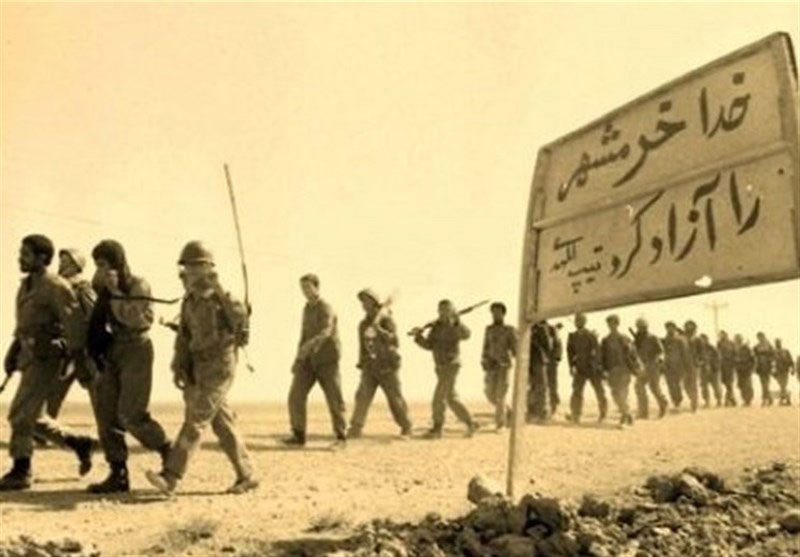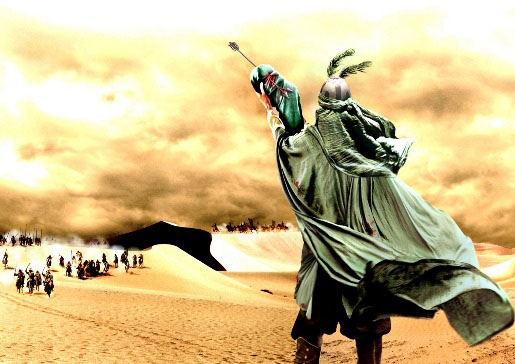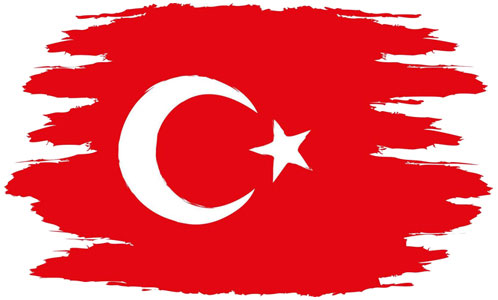All of us are entrusted with duty and responsibility, not entrusted with results;
Imam Khomeini
Introduction
Among the theoretical foundations and strategic principles of the movement of the great leader of the Islamic Revolution, Imam Khomeini - may God bless him and grant him peace - there are several points that it must be said that the victory of the revolution and the success of the guidance of its great leader are owed to these views. Because of the comprehensive, deep and systematic
attitude they had towards the life-giving school of Islam, the Imam of the Ummah - may Allah be pleased with him - was able to apply authentic religious teachings, rulings and values in the field of social management and use it well. It is time for them to show a successful example of the ability of religion in managing various aspects of human life. Extracting and determining the propositions that have been the basis and criteria for their policies and stances, as well
as the explanation of their Shariah documents, can be an analysis of the foundations of a comprehensive Islamic system from the perspective of a capable and experienced jurist and a A policy-oriented and thoughtful Islamologist.
Among the verses that have been mentioned especially in the end of the noble life of the Imam as a principle in all of his life and in his political behavior is the emphasis on the centrality and authenticity of duty regardless of the achievement or non-achievement of the result, which means that a person should In any case, he should live according to the Shariah obligation and when he is obliged to do or leave the current obligation, he should act according to the obligation, whether he achieves the result or not. Science is never obligated to not achieve an apparent result that fulfills the task, let alone suspicion and doubt about it.
This rule is true both in the individual and devotional actions of a person and in his social duties; For example, an obligee who is ordered to perform prayers or fast after entering the prayer time or the end of the holy month of Ramadan, even though he knows and is sure that he will not be able to complete his prayers and complete his fast due to temporary prostration.
At the same time, it is not permissible for him to abandon his duty and leave the prayer or break his fast from the beginning.
In social tasks, for example, if someone is obligated to forbid wrongdoing or uphold the right, he should not abandon it for fear of failure. Of course, in these examples, it is necessary to pay attention to the fact that the discussion is about the conditions in which the Shari'i duty has been directed at a person, not the cases where the knowledge or suspicion of failure is the basis of the obstacle to the duty; Such as cases where due to the impossibility of effect or knowledge of the lack of effect, the duty of doing good is not fulfilled and there is no obligation to discuss its outcome.
According to this point of view, in the position of compliance, even if someone fulfills his duty, whether he can finish it or not, whether he reaches the result or not, he is considered obedient and the duty will be discharged from him. This is a brief introduction to the topic of discussion. In this context, we intend to provide
a brief, simple and clear explanation of this issue.

Task and duty
1- The place of duty in human life
It is obvious that in a comprehensive school, all its components are closely related and in interaction and cooperation with each other, and it is not possible to judge a component without considering its position in the body of the system and without considering the general principles governing that set. Islam is also a comprehensive and complete system, in which all its components, including ideas, values, and rules, have been brought together in a harmonious, appropriate and sufficient manner, each of which has a specific function and a certain efficiency, and finally, all of them together provide They are the final goal and ideal of religion.
Islam has considered the goals and objectives for human beings in individual and social, worldly and hereafter, material and spiritual dimensions, and has presented criteria and indicators of the desirability of each. God's decrees and assignments are orders to take steps in this direction and to realize these goals. The All-Wise God has legislated all the Shariah orders according to the purposes and according to the specific benefits, which all these benefits are earned by the human being and in them the interests of the human being are taken into account. Even when the Prophet (peace be upon him) asks for something as a reward for his mission at the command of God, the result of this action is also for the people themselves.
Islam is the religion of dynamism and mobility and the school of human growth and ascension, therefore, tolerance and compromise with the existing situation, irresponsible treatment and subversion of desires and wishes are never prescribed by religion. All human beings are invited to achieve the best conditions and the highest position by using their maximum capacity,
society and nature correctly and optimally. It is not appropriate for a believer to neglect himself, his goal, and the path ahead even for a moment. Redeemed believers turn away from useless and useless work - that is, work that has no
benefit or value for the realization of their lofty ideals - and strive with full enthusiasm to achieve the goals of the Sharia. The frequent recommendations of religious texts, especially the Holy Qur'an, regarding patience and endurance are a sign of the steadfastness of religion and its insistence on its desired goals, and it indicates that obstacles and problems should not be considered as an obstacle in the way of fulfilling divine duties. And we should not stop behind them, but what is desirable is a continuous and non stop effort to climb to the heights of excellence.
2- The purpose of verbs and assignments
It is unwise to do things aimlessly or with a vague purpose, but having a multi-step purpose is not only not prohibited, but also completely wise and common. It was pointed out that the divine decrees are based on the purposes and subject to real benefits and corruptions. These purposes are often known to man, and there is no reason to prevent a man from knowing the
wisdom and philosophy of rulings. Of course, we should avoid making wisdom without reference and reason for the rulings of Sharia and not limit the causes of Sharia to our own understanding.
Perhaps lofty goals and many and undiscovered fruits follow a ruling, and man will achieve them with intellectual growth and expansion of knowledge and with a deeper and more comprehensive understanding of religion. Even in cases where the evidence of the ruling has an explanation, it cannot be claimed that its benefits are exclusive to it, because it is possible that the said explanation is a part or a stage of the purpose and the result obtained from the implementation of that judgment.
In general, with a cursory glance, we can point to three categories of motives for rulings, which, while they have three different levels, are within each other and at the same time, they are relevant to every action. These three
categories are:
A- partial and partial goals
Such goals mean the basic and direct results that are expected from an action in itself, regardless of its connection and cooperation with other tasks; For example, if one of the purposes of prayer is remembrance and remembrance of God, performing a prayer and repeating
it creates a state of attention and remembrance in a person continuously, or for example, ordering to fight with enemies in order to ward off evil and sedition, or It has been issued to remove injustice and justice. Achieving victory in this front is the independent goal and a special result that results from this struggle. The continuous goal and destination that is mentioned in some verses can be counted from this category; For example:
- "And the murderers, even Latkun Fitna and Yakun al-Din Allah;
Fight with the enemies so that there is no more sedition and the religion is for God.
- "And Aadwalahm, we are empowered, I am strong, and I am Rabat Al-Khil, I am a follower of Adullah and my Adokum...;
Prepare as much force and horses as you can to fight the infidels, so that you can scare the enemy of God and your enemy."
"... If one of them is angry with the other, then he will turn away from you, even if he fulfills the command of God;
If a group of believers oppresses and violates another
group, then fight the aggressor so that he submits to God's order.

The role of goals in life
B- Intermediate goals
The meaning of this level of purpose is the purposes that follow the divine duties as a whole and in the overall organization of religious teachings, values and rulings. Unlike the first case where the result of a ruling was considered independently, in this clause, the benefit and effect of the duty, as a condition of the object and as a member of the set of rulings and as a role in the whole intellectual and value system, is considered. It is an opinion.
In other words, the purpose of the mission of prophets and the collection of religious teachings is also true for each and every assignment; For example, "Eqama Qast" is an ideal that
the Holy Quran has introduced as the motivation for sending prophets:
"We have sent our messengers with the visions and sent them down with the books and the scales so that people will be in proportion;
We sent the Prophets with clear signs and along with them we sent down the book and the measure so that the people will observe the installments and justice.
In explaining this matter, it should be said that the whole world is under the authority of God and subject to His will, and divine justice is governed by the creative will of His Holiness, except in the area of man's authority and responsibility, where God has given a glimpse of His will to man and He has appointed him as the "Caliph of Allah" to fulfill the divine will
on earth; That is, God has ruled justice in all existence by his "creative will",
But on earth, he wants to achieve it according to his "legislative will", through the laws of Sharia and by human hands. Therefore, this dissimilar and dissimilar piece of existence should be given a divine color by the hand of man. It should be inside and outside of man and all the areas that are under his control, the manifestation of "God's Names" and the exaltation of "God's Word". From this point of view, the laws legislated by the Lord are the introduction and means of the divine sovereignty.
A clear expression of this meaning can be found in the honorable speech of Imam Khomeini - Quds Sar, where he said: "Government, in the eyes of a true mujtahid, is the practical philosophy of all jurisprudence in all aspects of human life."
That is, the motivation and purpose of all jurisprudence and all dos and don'ts, obligations, taboos, and others - both in individual and social rules - is
one thing, and that is the establishment and administration of the Islamic government.
He also said:
"... But it is possible to say: Islam is the governing body of affairs, and the laws of Islam are the laws of Islam and the dignity of affairs, but the laws are the interests of the people and the affairs of the law for its implementation and the extension of justice;
In fact, Islam is the same government with all its affairs and jurisprudence rules are the
laws [of government] of Islam and they are one of the affairs of the government, rather the rulings are "desired by nature" - that is, "desired by virtue and essence" which is desired by the religion and the mission of the prophets. That is the "Islamic government" - and the rulings are also desired because they are the means of implementing the religious government and the means of extending justice.
C - The final goal
According to Islam, what is considered the ultimate goal of human creation is the spiritual and spiritual perfection of man and his
approach to the supreme origin. The purpose of the seeker is to reach the perfect destination by the authority of Allah Almighty: "O human beings! In a difficult movement, you will face your Lord and finally meet him. We are all from him and we will return to him.
A thirsty and needy person - which is the same as imperfection, weakness and poverty - when he turns to his God and returns to the source of perfection, power and lack of need, his soul will be satisfied and fear, sadness and unhappiness in His existence fades, he is immersed in confidence, joy, laught, and
happiness and he achieves a good life and eternal happiness, which is comprehensive of all good deeds and devoid of any evil, and no higher than that can be imagined for a person. . "I act righteously, I remember, or female, and he is a believer, let us lead a good life, and we will reward them with good deeds."
3- The role of homework in education for this purpose
The human spirit grows and excels in the context of actions and tasks issued by humans; In other words, every action, good or bad, has an effect on the heart and soul of its owner and makes him closer or closer to God. Allameh Tabataba'i in his interpretation of the honorable verse "Aliya Yasaad al-Kalam al-Tayib wa al-Amal al-Saleh Yarifah" states that the meaning of "Kalam al-Tayib" is the belief in monotheism and other false beliefs that ascend to God, and the ascent of Kalam al-Tayib consists of Its approach to God, and since belief is based on its believer, as a result of the approach of belief, it is also the approach of the believer, and righteous action causes the elevation and elevation of belief and belief, and in other words, righteous action helps a person to approach God. delivers.
Abu Hamid al-Ghazali writes in "Revival of Science": Al-Fakr
The purpose of religious duties is to reform the human heart, and the body parts are the tools that bring a person to this destination, and the purpose of physical movements and activities is
to accustom the human heart to the will and desire of good and to strengthen the inclination towards good things in him. It should be done so that it gets rid of worldly lusts and turns to meditation and remembrance. So, the final result of actions and tasks is the effect that remains on the human soul: "All the degrees of action; all human beings have degrees in proportion to their actions." Every action, with its quantity, quality, and
special conditions, leaves a role in the existence and heart of a person, and makes him a little closer or further away from God, and ultimately determines his happiness or misery.

Doing tasks by humans and getting closer to God
4- The influence of the angle of view and criteria in the judge's judgment
As the passing of these three levels of the goal is within each other and can be added together, so that a person can consider all three from the beginning and achieve success in all three fields. Failure in one level does not imply or indicate failure in other levels. On the other hand, it is also necessary to pay attention to the fact that judging the success or failure of a work depends on the scale and direction by which the action is evaluated.
Ali al-Qaeda, each event can
have different results based on different criteria and from different angles, each of which can be calculated and analyzed separately, so it is important that a person considers which one is the fruit of dedication and consideration, or in terms of rank. classifying and determining the importance of which one to prioritize; For example, holding a sports competition and its process can have different goals from the point of view of different people, who naturally look at it based on the same criteria and from their own point of view and judge about its results and fruits; For some, including the fans of each competitor, winning and losing and championship can be the criteria and they are sensitive to the victory or defeat of their favorite front, but this result may not be important for others; For example, maybe it doesn't matter to the owner of the gym whether they are winners or losers, but the only purpose or the main purpose that he counts on is the amount of income that he gets from this area. For journalists, the degree of controversy and the sensitivity of the results - in the interest of everyone - is important. Some people from these competitions are looking for cultural, propaganda, political goals and the like, some are trying
to acquire skills and prepare more, and even two people may be watching the game based on issuing a certain behavior from the players and the number of times that condition and of course what is important for these two is this and that's it; Neither the parties' wins and losses nor anything else. As each of the above examples also evaluate and follow their desired result.
Therefore, the human computing device and his point of view play an important role in determining success and failure, victory and failure and the amount of each. The supreme observer of the universe and the general judge also looks at the actions of the servants based
on certain criteria and measures the results of the actions with the same criteria. Believers and those who believe in this truth adjust their behavior according to these standards, even though spiritual goals are not understood and understood by short-sighted and materialistic people, or they are not acceptable and accepted, or they are not considered, or they are the first and foremost. It is not the first, or it is not disputed and they do not have a fight over it; That is, it does not matter to them whether they are winners or losers in this field and from this point of view, whether they are victorious or defeated, but their point of view in things
is only material and apparent purposes.
5- The difference between God's intentions and external perceptions
What God does to His servants, whether they are believers or unbelievers, is based on specific purposes and is measured with special scales, and therefore its good and bad often do not match the outward judgments of the people of the world. Also, its motivations, consequences and results are also different from what comes to the simple mind of materialistic and superficial people. The following verses show some of these examples:
"And as for those who are infidels, we do not give them good for their souls, but we do not give them a reward for their transgressions, and for them a painful punishment;
The disbelievers think that our respite is good for them, but we give them respite to increase their sins, and it is a humiliating punishment for them.
As God's respite and granting freedom of action to the devil is not a friendship against him,
it is a factor for intensifying his punishment.
"Flama naswama zikrwa to Fathana against them, the chapters of the whole thing, even if we are happy, we will not take them, but we will be clothed;
So when they forgot the warnings and warnings, We opened all the doors to them until they were happy and joyful with what was given to them, then suddenly We made them suffer torment and suddenly they were amazed at it.
That is, the opening and blessing that comes to a person after neglecting religion is the prelude to the descent of punishment.
- "We have sent to our Ummah, before I have been in trouble, and in distress, may they pray to them;
We sent messengers
to the nations before you, so [due to disobedience] We made them suffer hardship and unhappiness so that they could supplicate [to God]."
The meaning of rebuke and punishment is to alert and bring people back.
"... Oh my Lord, I will destroy my enemy and I will be wronged on the earth in the sight of your deeds;
May your Lord destroy your enemies soon and replace you on earth to see how you act."
"We have spoken to you on the Day of Al-Taqqi al-Jamaan, for God's sake and the knowledge of the believers, and the knowledge of those who are weak;
The problems and incidents that happened to you on two fronts were by God's permission and for the purpose of knowing the believers and those who committed hypocrisy."
From the above verses, it is clear that what God wants from victory and defeat, transfer of power and the like is the revelation of the nature of people and their currents and their
practical test.
6- Religious criteria regardless of apparent victory or defeat
In its calculations, religion has certain values that measure good and bad, success and failure, and in evaluating the results of actions, regardless of apparent victory or failure, it considers these criteria. Acceptance and non-acceptance, reward and reward, punishment and punishment are also based on these criteria. The following verses are some of the many examples that indicate that the reward and reward of God is not deferred to achieve the result; Whether the result is achieved or not, God's reward includes those who have fulfilled their duty:
- "And I will fight in the way of Allah, and if he kills him, he will prevail, because he will do it in a huge way;
"Whoever fights in the way of God, whether he is killed or victorious, we will soon give him a great reward."
- "This is that they are not harmed by thirst, nor are they righteous, nor are they weak in the way of God, and they are not helped by the anger of the disbelievers, and they are not enemies except for their books for righteous deeds. Indeed, God
does not waste the reward of the good-doers, and they do not spend alimony, small or large, and they are not cut off, and there is nothing but books for them, except for them. Allah is best for us, if we do it;
No thirst, difficulty, or difficulty will befall them in the way of God, and they will not step on the path that causes the anger of the infidels, and they will not be harmed by the enemy. Unless a righteous deed is recorded for them, surely God does not trample on the reward of the righteous and they do not do any small or large charity and they do not travel a path unless it is written for them to May God reward them better than what they have done."
- "And I will leave my house
as a migrant to Allah and His Messenger, then he will realize that death is the reward of Allah, and Allah is Forgiving, Merciful;
Whoever leaves his home for the purpose of emigrating to God and His Messenger, and then finds out about his death, his reward is the responsibility of God, and God is Forgiving and Merciful." Many other verses in the Qur'an indicate this meaning.
The above verses show that in the case of human actions, both external and external results - both immediate and delayed - and internal results - both worldly and hereafter - are all measured in a special system and with special criteria. Victories and apparent results should not be taken into consideration and considered intrinsically desirable, but what is original in the eyes of Islam is victory in the position of humanity; It is important to produce and
show a beautiful act and to give reality to excellent moral and human examples and to manifest virtues and values.
What would be better if both of these are achieved together! However, if the apparent victory is accompanied by the fall of spirituality and the lowering of human dimensions, this is the same as failure, and on the other hand, if the apparent failure and failure to achieve the apparent result happens in the lap of correctness of action and spiritual excellence, whatever it is, it is a victory. This is the criterion for the permanent victory of "Jundallah" and "Hezbollah" and the criterion for the permanent losses of "Hizb al-Shaitan", because the final product and result is always reserved for them even in case of defeat. and this result is basically beyond the reach of the enemies. As the Holy Qur'an identifies both the victory and the martyrdom of the believers as two good things and two virtues, and on the other hand, it considers the victory of the disbelievers to be their suffering from divine punishment and their failure to be punished by the hands of the believers:
"Say, ``Do you fear except for one of the good people, and we do not fear that Allah will punish me with my punishment? He has us, and we must believe. If you say, we are afraid.''
The decisive words of Hazrat Zainab - peace be upon her - also originates from this same system of thought, where she, as an observer who has seen the events of Karbala, analyzes the outcome of this event based on divine standards, and in response to a question of sarcasm Ameez Ibn Ziyad, "How did you see what God did to your brother and family?!" said:
"We have seen only beautifully, these are the people of the books of God, against them, the killing, so let them be killed, and the third gathering of God will be between them, and between them, or Ibn Ziyad, we will conquer and fight, so look at Laman al-Falaj Yumu'ez;
I saw nothing but beauty from God's handiwork, these are the group that God destined to be killed for them and they went to their graves and soon God will put you and them
face to face. "Each one will present what he has against the other, and on that day you will see whose failure it was."

The true meaning of victory and failure in life
7- Assessment based on correctness of behavior and adherence to principles
According to Islam, the goal does not justify the means, both the means and the goal must be permissible. The holy goal cannot be pursued except by pure means, and one cannot rely on any means to achieve the result. It is necessary to adhere to standards and move according to principles and rules, even if it leads to apparent failure and success in formal results and goals is not achieved. This failure is rewarded in the eyes of God, because as mentioned above, God looks at the quality of the action above all else, and this situation is like a referee, in his opinion, observing the rules of the game and the correctness of the players' actions are the main criteria, and he decides the final result of the competition based on this. Basis declares. Therefore, the one who moves against the standards, his behavior is the same as failure, and the one who governs the human principles and Shari'a rules and regulations on life equations is successful and victorious even in case of failure, because his life and behavior are a manifestation of rule of law. And it is a symbol of preserving values and the objective embodiment of truth.
From the point of view of Islam, this is a principled policy that a person should try to achieve victory in a positive way, i.e., by improving the level of measures and eliminating his own shortcomings and his own front and also look for the factors of failure and lack of success within himself and Otherwise, going astray and resorting to any means to reach the goal will have no other result than removing the distinctions of the two fronts, because in this case the conflict between right and wrong turns into a conflict between two false currents. And finally, the human movement will be doomed to failure and destruction due to its baselessness and invalidity.
The Holy Qur'an forbids the believers from going beyond the boundaries of justice on the pretext of the ugly deeds of others and says:
"O you who believe, be loyal to God, be martyrs, and do not be ashamed of your people, except righteousness, justice, and piety, and fear God, for God knows best what you do;
O you who have believed, always stand up for God and be witnesses to justice and justice. Don't let enmity with others lead you to abandon justice. Do justice, which is closer to piety, and fear God, for God is aware of what you do."
Amir al-Mu'minin Ali (peace be upon him) considers the consideration of the hereafter as the reason for the reluctance of a skilled and faithful person to use tricks and tricks to achieve results and says:
"That al-faith is with al-Saqd and la-ilm, Janna Oqi is mine, and we are treacherous, the knowledge of kif al-marjaj, and we are in the morning, in the time of taking the majority of the people of Al-Ghadr, and their descent is from the people of ignorance, to Hasan Al-Haila. We are the killers of Allah. The power of the heart is the way of the cunning and the way of hindering me, the command of Allah and the prohibition of fidea, the judgment of the cause, then the power against them, and I
take advantage of the opportunities to harm him in the faith;
Loyalty is the cognate of truth, and there is no shield like loyalty that prevents [stinging], and he who knows how to return to him should not be unfaithful. We are living in a time where most of the people consider disloyalty and breach of contract to be clever, and the ignorant people of this time attribute treachery and disloyalty to good planning and call them resourceful. May God punish them. There was a time when an experienced and wise man knows the solution, but the command of God prevents him. So knowing and able to work, leave the solution so that the one who doesn't care about religion can count the opportunity and take advantage of it."
Also, the Holy Prophet has said, in the position of falsifying the wrong idea that considers betrayal and the use of corrupt methods as intelligence and tact:
"By God, we are Mu'awiyah, who is a slave to me, and if it were not for the abhorrence of al-Ghadr, my son is the slave of people, but all the treachery of the dawn and the whole dawn of disbelief and the whole treacherous army will be known as the Day of Resurrection. By God, we are deeply ashamed and deeply ashamed;
By God, Muawiya is not smarter than me, but his way is to break the contract and commit sin. If it wasn't unpleasant to break the pact, he wouldn't be smarter than me. But every covenant-breaker incites to sin, and whatever incites to sin darkens the heart. The Day of Resurrection has raised a door for the covenant breaker and he recognized it as a door. By God, they won't be able to surprise me with deception, and they won't be able to make me weak with strictness."
The Holy Qur'an also considers adherence to wrong methods to the detriment of man and exempts the messengers of God from using them:
"And we did not hide from you, and I did not hide from you on the Day of Judgment, then you killed all of our souls, and we were not oppressed;
No prophet is allowed to betray and anyone who betrays will bring with him what he betrayed on the Day of Resurrection. Then everyone will be given what they have learned and they will not be oppressed."
In the continuation of this verse, the Holy Qur'an makes a comparison between those who seek God's pleasure in their lives and others who walk in the path of God's anger and displeasure.
8- Assignment to "result", assignment to "Ma La Yataq"
When the Shariah duty is imposed on a person, the person has the general conditions of the duty, i.e. maturity, reason, power and authority, otherwise, the duty is absolved from him. Therefore, the obligee means the person who has the mentioned
conditions, performing the duty depends on his own will and action. What is within the scope of human discretion and comes from him is this limit; It means deciding to do the task and taking action for it.
But the achievement of goals and results is not solely dependent on this factor, but the realization of the goal is a consequence of the action plus some other conditions and prerequisites, and various factors and events play a role in the path of learning the goal, which sometimes predict and control all of them
from Power is obligatory outside; In other words, the obligatory action to conceal his intention and purpose is part of the act, not all of it. Therefore, since the entire cause of the creation of the result and the purpose of education is beyond the authority of the obligee, demanding such an order from him and charging him for not achieving a result that depends on causes and causes beyond his control is unreasonable and improper.
Allameh Tabataba'i, in explaining the noble verse "Yuti al-Hikma Man Yasha, wa Man yut al-Hikma Qadavati Khair Kahir Kain" has a statement to the effect that "wisdom" means the ability to realize one's wishes and God, the Exalted and Exalted, is wise in this sense. It is almighty that what he wills, he achieves completely, and the reason why "wisdom" is introduced in the above verse instead of absolute good, is that no matter how much wisdom a person has, still in Realizing and achieving the result of what one wants and wills, cannot rely on one's own abilities, but the achievement of the result depends on God's success.
Therefore, man cannot be assigned to the result, but what he is ordered to do is just to perform the task in a good and correct way.

Divine success and success
9- The effect of "lack of mission to result" in human spirit and commitment
This doubt may arise whether such an attitude does not lead to the lack of commitment of man towards the purposes and results desired by the Shariah and religious ideals and does not prevent the seriousness and perseverance necessary to follow the Shariah duties?
The answer is negative, because from the point of view of Islam, the principle of man being obligated and committed always remains, and only "obliged to" - that is, the act that man is obligated to do - changes. Man is never irresponsible and free and is always subject to testing with various tasks. He is not responsible for the result, but he has no capital in life except his efforts and his sense of responsibility and commitment and the quality of his actions are completely under the eyes of God and are calculated with utmost precision. If the desired result is not achieved because of his tolerance and rebellion, he is responsible and reprimanded. It is excused only if the failure of the work is due to factors beyond his will and ability.
The condition of being obligated is "extent to duty" not "extent to result"; That is, a person does not have an obligation to do something that is beyond his control, not to something that is beyond his control. Therefore, if the performance of a task was within the limits of one's ability, as long as the subject of it remains and its expediency, that is, expediency, has not been excluded, or an obstacle has not blocked the path of "obligation" or "obligation to", this obligation remains in effect. Is. Only in the event that the matter is ruled out - such as the drowning or burning of the dead body, so that there is no longer a matter for the obligation of shroud and burial - or it becomes void of expediency - due to the
passage of time or change of circumstances - or it conflicts
with an important expediency or inability to do it, the duty is on the person.
After proving the duty, it is time to comply. When an obligation is imposed on a person, if the purpose of the order is not known or cannot be measured and estimated, the obligation is discharged from the person by the correct performance of the act assigned to him; Like the prayer, the result and its acceptance or non-acceptance cannot be recognized by the obligee, so if someone performs his obligatory prayer once with all the components and conditions, this obligation will be removed from him.
However, if the purpose of the ruling and its result are known and recognizable, as long as the purpose is not achieved, the obligation remains in force and the obligee must repeat it and continue. Sahib Kefaye has expressed this issue in the form of an example:
"If the servant brings the water that the master ordered him to bring for drinking, the matter is not void until the water is drunk, because the criterion for it still remains, and therefore if
the water is spilled and the servant finds out about it, the It is obligatory for him to bring water again, due to the fact that Mullah's request remains as long as his purpose is not achieved."
On the other hand, since the obligation is assigned to the titles of verbs and natures and not to individuals, if the nature of the verb is not unique to the existence of a person, the presence of the verb in one or some of these individuals does not resolve the obligation. Rather, the obligee must execute the lawful order in the form of other people; For example, when someone is obliged to support and defend the oppressed, if it is not possible to perform this duty in the form of physical defense, the duty of preparing its preparations or performing political defense and economic, propaganda, etc. support does not fall from him. Therefore, it can be seen that the lack of a mission to the result does not mean abdicating responsibility from a person and does not have any contradictions with conscientiousness and commitment and continuity of action. On the contrary, it can be said that believing that man is responsible for the result provides grounds for abdication of responsibility, because
in this view, great responsibilities and lofty goals that require a lot of strength and a long time are removed from man's responsibility. because what he is obligated to do is the result and this result is beyond his control, so he will no longer feel any obligation to go through the preparations and perform the tasks.
10- The practical fruit of these two views
As mentioned above, if the result and purpose of a duty is not known to man and cannot be measured and evaluated, such a duty is specifically out of the subject of our discussion, because the assignment to something unknown and unrecognizable is not reasonable, and this question is basically unnecessary, whether we are the assignment According to the task or the task to the result, and as a rule, in such cases, everyone should consider the task to the task. But in the case of rulings whose purpose and result are known and measurable, as long as their expediency and criteria remain and the obligee also has the conditions of duty, in this case, the fruit of "task strategy" and "result strategy" in terms of the obligation to act, and the necessity Continuity of action towards the same result.
The result of this discussion is revealed in two places: one in the position of realizing the duty to man, in other words, the position of feeling the duty, and the other in the position of compliance.
In terms of sense of duty, if someone believes in "mission to duty" as much as he has the capacity to perform the duty, he considers himself obligated, whether the result is possible and within his reach or not. But the person who believes in "mission to the result" will be burdened with the task much later and with more restrictions, because he must see the result that depends on many conditions and factors as possible for him in order to fulfill himself. to be considered subject to and subject to the address of the Shariah ruling; Especially regarding the social goals of Islam, with this view usually cowardly, unmanaged, pessimistic and hopeless people will never
feel responsible.In the position of obeying and complying with the ruling, according to the "strategy of duty", the obligee is obedient and willing while performing the duty - whether he achieves the result or not - and if there is an obstacle in the way of achieving the result, he cannot be blamed, and the precedents that are urgently used by him placed will be legitimate. But according to the "result strategy", as long as the objective is not achieved, the obligee is not considered obedient and does not comply with the order, and naturally, he will not be entitled to remuneration and rewards as a result of the damages and efforts he has incurred in this way and the expenses he has spent. All of them are considered part of his losses; For example, a person who is obliged to save a drowning person, if he is forced to occupy other people's land and pass through it in order to fulfill his duty, and ultimately fails to save the drowning person, even if he is "committed to the result", he has not fulfilled the duty of saving and He is also responsible for occupying another's land, but if he is a "duty officer", he is excused in both cases.
Imam Khomeini has also usually emphasized this meaning in two positions, which is consistent with the above two axes:
The first position is in response to the doubts of people who rejected the struggle against the oppressive royal regime or insisting on the holy defense and its dignified continuation because of the disappointment of the result or the fear of its dangers. In such cases, the imam emphasized by citing this point of view that even if we do not achieve victory and if we are all killed, we are still obligated and must continue this way.
The second position after the end of the imposed war is that some people tried to pretend that the nation,
the revolution, and the fighters were damaged and defeated, and Imam - Hashra Allah with his holy saints - relied on this axis that we were not responsible for the conclusion of this point. They pointed out and reminded us that we are successful because we have done what we were assigned to do, i.e. our task, and achieving results and victory in its literal meaning was not part of our mission and task, because we did not achieve it. to feel the damage to it, therefore, what we have endured and the loved ones we have lost were all in the way of God and by God's order.

Doing the divine duty
11- Task centrality means understanding the new situation
From the point of view of Islam, each title has a specific ruling and the rulings of Sharia are fixed and unchangeable. But the subjects of rulings, i.e. the facts and new elements of human life, are constantly changing and evolving. "Time and place are two determining elements in ijtihad. An issue that has had a ruling in the past, apparently the same issue in the relations governing politics, society, and the economy of a system, may find a new ruling; It means that with a detailed understanding of the economic, social and political relations, the same first issue, which is not different from the old one in terms of appearance, has really become a new issue that necessarily requires a new ruling"; For example, sometimes establishing some kind of political or economic relationship with a country is an example of dominance, but the same relationship at another time or at the same time with another country may not have this characteristic and title.
Adhering to the "strategy of the originality of duty" gives the human being the privilege to always act in a new situation and in accordance with time and place, and it prevents stagnation and becoming stereotyped in relation to a method or a goal, because until now, it has good and It is expedient and it is done as a duty, but if the same action leads to evil or is devoid of expediency, it is lost from being a duty and another action with the same purpose or with a different purpose replaces it. A person who adjusts his
behavior according to the task easily applies this change in his path according to the spirit and interior of things, without being stagnant and biased towards molds and shells. Insisting and emphasizing unnecessarily on any fruitless and unnecessary work is harmful and prevents a person from progressing in the necessary and needed areas. Such a thing is like a military group after changing the enemy's position and moving, continues to fire on their previous positions, advance towards their empty trenches, and as a result, ignore the enemy's new position.
A person who is able to move and stand on a moving and shaky surface or has the ability to walk with wheeled shoes on a slippery surface means that he can adjust and maintain his balance from moment to moment with the results of existing components and factors. For such a person, it is possible, normal and easy to move in conditions of stability and stillness in the first way. But the one who does not include the factor of "change" in his calculations, will naturally be unable to present a decent behavior in accordance with the new conditions. A person who acts according to duty has accepted "change" as an inevitable fact and not only does not resist it, but anticipates it with pleasure.
Wayne Gretzky, who is considered the greatest hockey player in the history of sports, said about his secret to success: "I slide where the hockey rink is supposed to be, not where it has been."
As it was said, this flexibility is also true in the case of using tools and adopting methods, because the requirements of time and place require a specific action to achieve the goal, and naturally, it is the duty of man to adapt to the new conditions, which are the result of various factors. Among other things, it is obliged to perform itself - and it is determined in relation to values,
principles and goals. Therefore, the quantity and quality of the assignment is also changeable. Orbital task gives the human being the ability to be constantly present in new situations and do what he needs to do at any point in time. Another example can clarify this meaning better; "A golfer named "Iri Majiri" compared the continuous flow and the need to change the operation process
of the factory with the game of golf. He says: This is the place to put and hit the golf ball, and after that, everything is a grass field. A hole in the green is the golfer's ultimate goal, but exactly how you get there depends on many factors. The way you hit the ball and the number of shots you hit will naturally affect what happens in your game between the first shot and the ball entering the hole. You may also hit an obstacle such as a sand trap or a pool. "At the factory, we know exactly where we want to go, but we have to be flexible and make changes along the way to get where we want to go."
In short, in the "originality of duty strategy", making changes in duties due to changing conditions and requirements is considered reasonable and acceptable and even necessary. As a result, when the duty is war, it should be followed with conviction and when the duty is The end of the war should be accepted easily. As in the holy defense, our main conflict was not with the apparent enemy - that is, the Iraqi regime - but with the global system of disbelief and arrogance, as a result, fighting with the Ba'athist regime had no value and originality in itself, but was a duty to repel aggression and eliminate sedition. And therefore, there is no permanent need to continue the battle in this format. At that time, the task of cutting off the head of arrogance and repelling his aggression and defending the whole of the country and the Islamic Revolution was formed in this format, and now in other fronts and in other forms.
12- The benefits of doing homework (regardless of the result)
In connection with this discussion, another question may arise, and that is, if a person considers himself to be responsible for a task and acts on it regardless of the achievement or non-achievement of the result, does the behavior according to such a theory cause a waste of energy? And it will not be a scattered work, and as a result, human power and capabilities will not be spent on intermittent and fruitless tasks?
In response, it should be said: What is actually harmful or lacks expediency is definitely not a duty to man by religion, so all divine commands and decrees certainly contain good and expediency in any way, and observing them is preferable to not observing them. has it. Therefore, Shariah duties should be viewed in a positive light and its implementation should be considered as a source of blessing and goodness. In addition, it should be kept in mind that the rate of efficiency of actualized human forces and talents and the amount of progress achieved by applying this perspective - originality of task - for the individual and society will be higher than the rate of efficiency if the opposite theory - originality of result - is applied. Was. Because, although in this view, man exposes himself more to possible dangers and difficulties, but on the other hand, he will not be caught in the stagnation and stagnation and indecision resulting from the opposite point of view.
In addition, the following can be considered as the benefits that can be obtained from simply doing the duty:
A- Getting close to God and getting His satisfaction
ecause of obeying God's orders, man enjoys worldly and hereafter rewards. In this regard, it can be said that doing the task itself is considered a result in a way, because the spirit of obedience to the Lord elevates the position and dignity of a person and is worth bearing any failure or damage. Imam Khomeini said in this regard: "The Prophet - peace be upon him - was defeated in some battles, Hazrat Amir - peace be upon him - was defeated in the war with Muawiya. They killed Hazrat Seyyed al-Shohda (peace be upon him), but being killed was obeying God, it was for God's pleasure, all the dignity was for him, so there was no failure, he obeyed."
B- Extending the flow of justice and preventing its deterioration
Since Islam is the religion of the community and for all people in all times and places, many of the goals of the religion are achieved through the collective efforts of believers and over time. Therefore, the remoteness of some results and goals should not prevent us from doing our duty, because otherwise the main burden of the great goals of religion will remain on the earth. The efforts that are made in order to fulfill the tasks should not be considered failed and fruitless because of the lack of results in the short term, but because of these movements, at least the preparations for the continuation of the path by others and the future have been prepared and this The half-finished work and historical experience resulting from it will be available to future generations and used by them as a trust. Therefore, it can be said that this thinking allows the human society to follow long-term plans and divide work widely in time and land, and prevents the forgetting and deterioration of religious values and ideals.

Cooperation and joint effort in doing the task
If it is intended that everyone defers their action to ensure its success, no important work should ever take place in the society, because usually in such matters, the strength of a single person does not reach anywhere and does not play a role in the appearance of the work, but If anyone is committed to doing his duty in such a way that he can do it even if he is alone and without the help of others, the totality of these activities will make the impossible possible and reveal a promising perspective of the goals to the eyes of the people. The difference in work is shown here that if each healthy person in a corrupt group considers himself obliged to do the right thing and perform his duty, a front, although informal and unorganized, will be formed from their existence, which can It is a good ground for the rule of law and the establishment of divine limits. But if everyone joins hands with the justification that the correct work of a person has no effect and result in a corrupt system and becomes the same color as others, even the primary core of a change and transformation will not be created and the result will be nothing but There will be no division and cessation of the right and the absolute rule of the wrong.
C- Creating transparency and theoretical and practical distinction between right and wrong
Usually, one of the dangers that threaten the religion and happiness of people, and its danger is greater than pure oppression and falsehood, is the confusion between truth and falsehood, and the cloaking of truth over falsehood. Doing the duty, even if it does not lead to the result, prevents the blurring of the boundaries between right and wrong, and separates the front of these two and their supporters from one another, and causes the truth to be declared, the falsehood to be exposed, and the face of Tazvir to be exposed and disgraced. And hypocrisy.
"He (Sydal Shahada) - peace be upon him - saw it as a duty for himself that he should resist this power and be killed in order to mess up this situation, to disgrace this power with his sacrifice and the people who were with him. ... while according to the rules, it was clear that a few people could not fight against the people they have, but it was a duty."
D- Increasing resistance against falsehood
Since in this way of thinking, the task of standing in front of the enemy and hitting it is not dependent on the assurance of victory, naturally the power of taking risks and its coefficient in the society has increased and the amount of scattered individual and organized group resistance against the enemy has increased. increases and inspires this motivation to others. Therefore, in addition to intensifying the courage and boldness of the society, it also destroys the enemy's false boundaries and false grandeur.
E- Strengthening the sense of responsibility and determination
One of the strengths of a person or a nation is having a sense of responsibility and being used to work and effort. Acting on one's duty strengthens the spirit in a person to do his duty confidently and decisively without feeling weak, doubtful or wavering, and does not become obsessed, indecisive, stagnant and despairing because of doubts and useless possibilities, because sometimes A person is not correct about the "result of the ruling" and his ability and
scope, and he stops doing the task thinking that he is not able to study the purpose, even though he would have achieved the result if he had done it. The lack of mission to the result has this feature that prevents the involvement of wrong calculations or ignorance and neglect and weakness of egos in recognizing and feeling the duty.
And - Negation of failure and its negative effects
The sense of loss and failure often weakens people's morale and creates disunity in the society, and sometimes even causes a crisis and disorder in the identity of a nation. Whereas, if a nation considers itself to have a strong and invincible base against the enemy, it will appear in various arenas with self-confidence and an unshakable identity and will never suffer self-defeat or humiliation; In other words, the point of view of "authenticity of duty" is such that the person responsible for the duty will not suffer loss or failure under any circumstances.
G- Making the false path unsafe and difficult
If the enemies feel safe in their path, not only will they not stop doing evil, but they will also expand their scope of work and increase their attacks on the right front. Therefore, face to face with the enemies makes their path dangerous and unsafe and disrupts their movements, and as a result, due to these difficulties, their supporters are reduced and the attraction of non-aligned and well-wishers is prevented.
H- Persecution of enemies
Although the conflict with the enemies did not lead to the final victory, it causes the suffering and pain of the enemy and in turn causes the warmth and happiness of the friends. The Holy Quran introduces this factor as one of the motivations and benefits of fighting the enemy:
"May Allah punish them and kill them, and let them freeze me and turn me against them, and let them see the issue of the people of the believers* and let them be angry with their hearts* and let God repent of me, and God is All-Knowing, Wise; Fight with them so that God will punish them and humiliate them at your hands and give you victory over them and heal the hearts of the believers and quell the anger of their hearts* and God will bless whomever He wills. And mercy will return to him, and God is All-Knowing and All-Wise."
13- The epic of Ashura, a model of doing one's duty
The incident of Karbala is a process in which the two fronts of right and wrong faced each other during an unequal battle. The outcome of this war was also known to Imam Hussain (peace be upon him) from the beginning at the same time we can see that he continued his chosen path with full confidence and without any hesitation and in this way, he and 72 Ten of the best servants of God sacrificed themselves on the way to revive the religion, and for none of them, the apparent victory was not
the criterion of action, but they only considered doing their duty and the righteousness of their way. According to the narration, when Imam (peace be upon him) informed his companions about the news of martyrdom, Hazrat Ali Ibn Al-Hussein (peace be upon him) asked, "We are the first to be right?" Aren't we right?" Hazrat answers: Yes. He says: "Fazen la Nabali Balmut; So we are no longer afraid of death."
It can be seen that this passionate movement and this act of duty, despite the apparent failure, led to the revival of the school and the salvation of Islam and justice, and by preventing the introduction of an upside-down religion, it secured the future of Islam. This clear opposition to oppression led to the exposure of the unjust government and the disgrace of the unjust power, and it shook the foundations of the corrupt Umayyad government and created a barrier against the royal government and the renewal of the prejudices of Arab ignorance.

The saga of Ashura and doing one's duty
14- The strategy of originality of duty in the words of Imam Khomeini
For a good ending, we will end this article with excerpts from the words of the great leader of the Islamic Revolution, Imam Khomeini. These statements are the view of an Islamic analyst who, after the end of eight years of holy defense, sums up this event based on religious foundations. His short and selected words say everything that needs to be said in this regard:
"We do not regret our performance in the war for a moment. Have we forgotten that we have fought to fulfill our duty and the result has been substandard. Our nation fulfilled its duty until the day when it felt that it had the power and duty to fight, and fortunately for those who didn't hesitate until the last moment, when they saw the expediency of the survival of
the revolution in accepting the resolution and accepted the resolution. He has fulfilled his duty.
Should he be worried that he has fulfilled his duty?... The delay in reaching all the goals is not a reason for us to deviate from our principles. All of us are assigned to fulfill duties and obligations, not assigned to results. If all the prophets and infallibles - peace be upon them - were obliged to achieve results in their time and place, they should never go beyond their ability to act and talk about general and long-term goals that were never realized in their apparent life. is, to bring up a dhikr. While thanks to the great God, our nation
has been able to achieve success in most of the fields that it has proclaimed... Of course, we admit that there have been many obstacles in the way of action that we have had to change our methods and tactics. Let's change."
15- Side effects of holy defense in Imam Khomeini's eyes
Since the holy defense and its end has been one of the influential areas of the "result and duty" debate, Imam Khomeini's statements are presented in this regard:
"I must say that the Islamic Revolution of Iran has been successful in most of the goals and fields, and with the help of the great God, we have not been defeated or defeated in any field, even in the war, the victory belonged to our nation, and the enemies did nothing in inflicting all those losses on did not achieve
Of course, if we had all the causes and means at our disposal, we would have looked at and reached higher goals in the war, but this does not mean that we have been defeated by the enemy in our main goal, which was to repel aggression and prove the strength of Islam. We have had a blessing in war that we have benefited from in all scenes. We have exported our revolution to the world in war. We have proved our oppression and the oppression of the aggressors in the war. We removed the veil from the false face of the world eaters in the war. We have known our friends and enemies in war. In the war, we have come to the conclusion that we must stand on our own feet. We defeated the two superpowers of the East and the West in a magnificent war. We strengthened the roots of our Islamic revolution in the war. In the war, we fertilized the sense of brotherhood and patriotism in the institutions of individual peoples. In the war, we showed the people of the world and especially the people of the region that we can fight against all powers and superpowers for years. Our war led to the conquest of Afghanistan. Our war will lead to the conquest of Palestine. Our war caused all the leaders of corrupt systems to feel humiliated in front of Islam. Our war led to the awakening of Pakistan and India. It was only during the war that our military industries enjoyed such growth and most importantly, the continuation of the wave of revolutionary Islam was realized in the light of the war.
All these were blessed by the pure blood of dear martyrs of eight years of battle. All this originated from the efforts of mothers and fathers and the dear people of Iran in nine years of struggle against America, the West, the Soviet Union, and the East. Our war was a war of right and wrong and it cannot be finished. Our war was a war of poverty and wealth. Our war was the war of faith and wickedness, and this war exists from Adam to the end of life. How short-sighted are those who think that because we have not reached the final goal in the front, then martyrdom, bravery, sacrifice, self-sacrifice and fortitude are useless! While the voice of Islamism in Africa is from our eight-year war. People's interest in Islamology in America, Europe, Asia and Africa, that is, in the whole world, is from our eight-year war.
Imam Khomeini's Congress and Islamic Government Thought / Political Philosophy (2), vol. 3, p. 31.
Dear Visitor; Please take a look at the list of 50 most visited websites in the world wide web: YouTube, Facebook, google, translate, gmail, weather, amazon, Instagram, cricbuzz, Hotmail, wordle, satta king, twitter, yahoo, yandex, sarkari result, Netflix, google maps, yahoo mail, roblox, whatsapp, NBA, BBC news, outlook, pinterest, flipkart, eBay, omegle, live score, tiktok, canva, ipl, premier league, hava durumu, ibomma, walmart, twitch, ikea, shein, linkedin, home depot, e devlet, lottery, snaptik, cricket, serie a, nfl, spotify, fox news, amazon prime; There is no book publishing related or project management website in this list. We are working hard to bring these important issues to the center of concentration of societies. Please introduce us via social media, share our website with others and help us to make our world a better place to live. Best Regards.



















Write your review